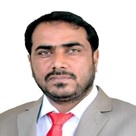Prof Nadeem Iqbal
Pakistan, with its stunning landscapes, rich history, and vibrant culture, holds immense potential for hospitality and tourism. From the snow-capped peaks of Gilgit-Baltistan to the ancient ruins of Taxila and Mohenjo-Daro, Pakistan offers a treasure trove for tourists.
Globally, tourism is a powerhouse industry. According to the United Nations World Tourism Organization, 1.4 billion international tourists traveled in 2024, nearly recovering to pre-COVID levels, generating $1.9 trillion in revenue, an 11% increase from 2023. Tourism creates millions of jobs and drives foreign exchange earnings worldwide. Pakistan, with its natural beauty and cultural heritage, can tap into this global trend to boost its economy, leveraging its unique attractions to attract visitors and showcase its potential on the world stage.
In Pakistan, tourism’s contribution to the economy is significant but underutilized. The World Travel and Tourism Council reports that in 2022, tourism accounted for 5.9% of Pakistan’s GDP and supported 4.2 million jobs, with tourist spending reaching $16 billion. Projections suggest this could grow to $30 billion by 2033. Domestic tourism has surged post-COVID, with over 1.2 million visitors to Khyber Pakhtunkhwa alone in 2021-2022. Tourism generates foreign exchange, supports local businesses like hotels and restaurants, and creates jobs in rural areas. However, Pakistan’s tourism share lags behind regional peers like Sri Lanka (12% of GDP) and Nepal (8%), highlighting the need for strategic development to unlock its full potential.
Enhancing tourism in Pakistan requires targeted efforts. Improving infrastructure, such as roads, hotels, and transport, is critical. Initiatives supported by the World Bank in Khyber Pakhtunkhwa focus on eco-friendly tourism development. Strengthening security is essential to ensure tourist safety, a key factor in attracting visitors. Digital marketing through social media and an efficient e-visa system, expanded to over 50 countries in 2024, can draw more tourists. Diversifying tourism offerings – eco-tourism, adventure tourism, and religious tourism – can broaden appeal. Engaging local communities through homestays and local guides promotes sustainable tourism. Government policies, like the Tourism Coordination Board, are vital for coordinated growth.
Tourism significantly strengthens Pakistan’s economy. In 2019, it generated $1.1 billion in foreign exchange and supported 3.8 million jobs. It boosts local businesses, such as hotels, restaurants, and handicraft shops, reducing poverty in rural areas like Swat and Gilgit-Baltistan. Infrastructure development for tourism benefits other sectors, while cultural exchanges enhance Pakistan’s global image, attracting investment. Pakistan’s 101st rank in the 2024 Travel and Tourism Development Index indicates room for improvement, but the potential for economic growth through tourism is undeniable.
In this regard, it is to be mentioned here that the BS Fintech and E-Commerce program at the National Skills University (NSU) Islamabad supports tourism through digital innovation. This four-year program equips students with skills in online booking systems, digital marketing, and fintech, enhancing hospitality services. Practical training and industry partnerships, such as with financial institutions, prepare students to digitize tourism operations. The program enables earning while learning, as students can undertake freelancing or e-commerce projects, fostering financial independence. By aligning with global digital trends, NSU’s graduates strengthen Pakistan’s tourism sector, contributing to economic growth.
Well, hospitality and tourism are key to Pakistan’s economic prosperity. By aligning with global tourism trends and improving infrastructure, Pakistan can enhance its tourism industry. This growth will drive foreign exchange, employment, and cultural exchange, strengthening the economy and showcasing Pakistan’s potential globally.
The writer is the Chairperson, Department of Management Sciences, National Skills University, Islamabad. He can be reached at: nadeem.iqbal@nsu.edu.pk.
Related Posts






Comments